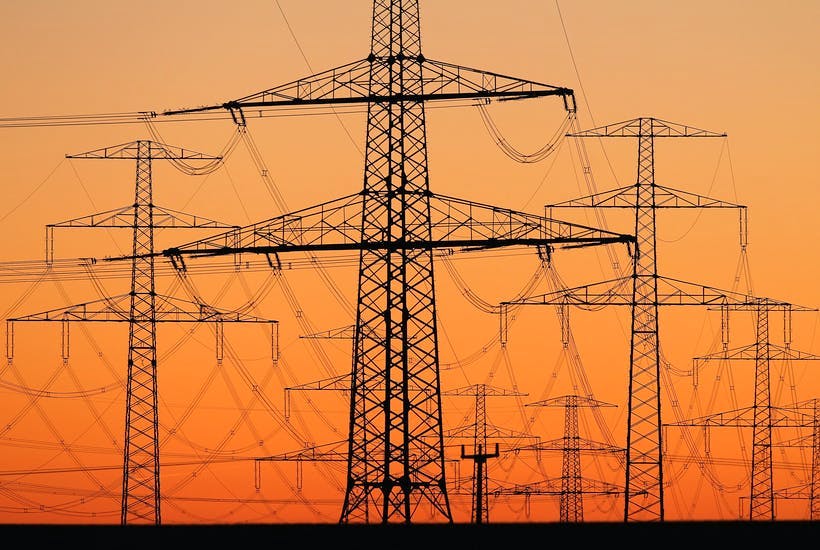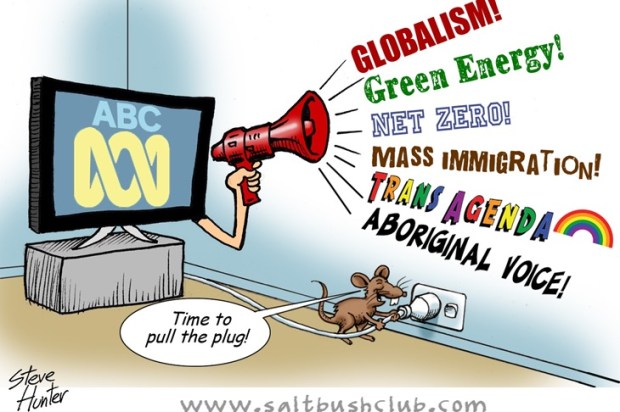When he resigned from the Liberal Party last week, Craig Kelly signalled that he would be seeking to highlight the catastrophic consequences of failed energy dogmas. Indeed, he flagged that energy policy was the one area where he could well vote against the government.
Kelly will have his work cut out in assessing what to target among the $7 billion a year multitudinous subsidy schemes for renewables overseen by ministers more intent on placating green activism than restoring a low cost, reliable electricity supply and green activists actually controlling state government policy.
An immediate issue concerns the Clean Energy Finance Corporation (CEFC), just one government institution in the energy space that is poisoning the market with selective support to otherwise non-viable investments.
The CEFC last week loaned $160 million to finance the Neoen 300 MW Victorian Big Battery under the new System Integrity Protection Scheme (SIPS) on behalf of the Australian Government. The battery is intended to help cover demand peaks that renewables cannot meet and will be administered by the market manager, AEMO.
Endorsement of the deal was supplied by an array of government bodies including Infrastructure Australia, whose CEO is the former head of the Green Building Council. The Commonwealth Energy Minister, Angus Taylor supported it, saying, “Investments in batteries can help stabilise our grid at a time of record investment in renewables.” And the sponsors paid a big name consultancy (PWC) for a report that says for every dollar invested there is a two-dollar return. All parties seemed to be comfortable that “Independent analysis by PWC found that the SIPS process could deliver total benefits of more than $220 million to Victorian consumers in the next 11 years, including savings on power bills.”
How about that for a bargain?
The real story – the story Kelly could highlight — is one of an ever-increasing debasement of an electricity system as government regulations cause mounting costs by requiring expanding renewable energy supplies that are both expensive and unreliable. The cost impost is then compounded by measures that attempt to defray the unreliability resulting from the original requirements.
The new loan process was started by the Victorian Government. Energy Minister Lily D’Ambrosio’s advisers recognised the damaging effect caused by requirements on electricity suppliers to incorporate growing supplies of high-cost renewable energy. To relieve the associated impact on reliability this causes, they sought palliative measures. A contract was let offering very generous returns for a Big Battery on terms which, arguably, only Neoen could have realistically been a bidder. The costs of this – like those for renewables themselves – are conveniently folded into electricity bills so that nobody notices who has caused them. And CEFC, on behalf of the Commonwealth taxpayer, comes to the party by funding the project via subsidised loans.
So. politicians, seeking to placate green activists inside and outside their own parties, foist onto the electricity consumer costly and unreliable wind and solar. By forcing out of the market low cost and reliable coal generation, this raises electricity costs. The supply of wind and solar also causes the system to become unstable since, unlike coal, gas and hydro, its supply is variable and uncontrollable. This requires further costly measures like Snowy 2,
new transmission systems, reserve power schemes administered by the market manager and now the Big Battery. All of these magnify the original damage.
A compliant media, like most of the political class, accepts the outcome of instability as part of a natural “transition from coal” to renewables and are soothed by spurious findings from bodies like CSIRO that renewables, though they need subsidies, are really cheaper than hydrocarbon supplies.
As Kelly might like to point out, defiant governments rant against deindustrialisation, much of which is due to the higher energy costs they themselves have nurtured. They introduce further costs in an attempt to save the most high-profile industries that their policies are making uncompetitive. In a vicious cycle evocative of a snake eating itself, these costs are shouldered by other producers, thereby further impairing their competitiveness.
Over to the Member for Hughes.
Got something to add? Join the discussion and comment below.
Get 10 issues for just $10
Subscribe to The Spectator Australia today for the next 10 magazine issues, plus full online access, for just $10.


























Comments
Don't miss out
Join the conversation with other Spectator Australia readers. Subscribe to leave a comment.
SUBSCRIBEAlready a subscriber? Log in